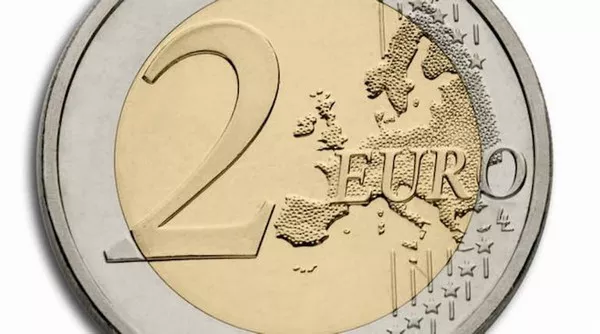Switzerland, a picturesque and prosperous nation nestled in the heart of Europe, has long been a subject of fascination and curiosity. One of the most perplexing aspects of Swiss economics and politics is its steadfast refusal to adopt the Euro as its official currency, despite its geographical proximity to the European Union. This decision has not only defined Switzerland’s financial independence but has also raised numerous questions about the rationale behind it. In this article, we will explore the historical, economic, and political factors that have led Switzerland to maintain its own currency, the Swiss Franc, and why this decision remains a prudent one.
Historical Perspective
Switzerland’s decision to remain outside the Eurozone can be traced back to its historical legacy of neutrality and financial stability. Switzerland, known for its centuries-old tradition of political neutrality, has always cherished its independence. This neutrality allowed the nation to navigate through the turbulent times of European history without being embroiled in conflicts and alliances. Such a stance in international politics naturally extended to economic matters, including the choice of its currency.
Switzerland has maintained its own currency, the Swiss Franc, for centuries, thereby maintaining control over its monetary policy. By not adopting the Euro, Switzerland has retained the flexibility to adapt its monetary policy to its own economic conditions. This strategic flexibility has been particularly valuable in times of economic crisis, enabling the Swiss government and its central bank, the Swiss National Bank, to make swift adjustments to monetary policy when necessary.
Economic Stability
One of the primary motivations behind Switzerland’s rejection of the Euro is the country’s unwavering commitment to economic stability. The Swiss economy is renowned for its resilience and low inflation, attributes that have played a crucial role in the country’s prosperity. The Swiss Franc has been a cornerstone of this stability, allowing the nation to retain control over its monetary policy and safeguard its economic interests.
Switzerland’s pragmatic approach to currency management includes rigorous oversight of its money supply, which ensures that inflation remains low. The Swiss National Bank has maintained a conservative approach to monetary policy, helping to stabilize the value of the Swiss Franc. This approach has enabled Switzerland to navigate through global economic crises with relative ease, as witnessed during the financial turmoil of 2008.
Furthermore, Switzerland’s small, open economy is highly dependent on exports. By not being bound to the Euro, the Swiss Franc can adjust to changes in currency values and maintain its competitiveness in the global market. A flexible exchange rate allows Swiss exporters to adapt to the ever-fluctuating international trade landscape, helping to support economic growth.
Political Independence
Another crucial factor influencing Switzerland’s decision to retain the Swiss Franc is political independence. Switzerland, with its unique system of direct democracy and strong cantonal (regional) governance, is inherently suspicious of ceding power to supranational organizations. Adopting the Euro would entail a significant loss of control over monetary policy, as the European Central Bank would have a direct influence on the Swiss economy. This is a step that the Swiss government and its citizens have been hesitant to take.
The European Union’s complex bureaucracy and ever-evolving political landscape have raised concerns in Switzerland. The Swiss people have consistently demonstrated a preference for self-determination, a fundamental principle of the country’s political identity. By retaining the Swiss Franc, Switzerland can continue to control its monetary destiny and avoid potential political entanglements within the Eurozone.
Protection Against Economic Shocks
Switzerland’s choice to remain outside the Eurozone has served as a buffer against economic shocks. During times of global uncertainty, such as the European debt crisis and the recent COVID-19 pandemic, the Swiss Franc has proven to be a safe haven currency. Investors flock to the Swiss Franc in times of crisis, driving up its value, which has been an asset for Switzerland. This scenario provides a significant economic advantage by enhancing the country’s financial stability and reducing exchange rate volatility.
By not tying itself to the Euro, Switzerland has the flexibility to implement monetary policies that protect its financial system during turbulent times. This autonomy was evident during the European debt crisis when the Swiss National Bank intervened to prevent the Swiss Franc from appreciating too sharply against the Euro. Such actions would be difficult, if not impossible, if Switzerland had adopted the Euro.
Conclusion
Switzerland’s steadfast refusal to adopt the Euro can be attributed to a combination of historical, economic, and political factors. The Swiss commitment to neutrality, economic stability, and political independence has led to the preservation of the Swiss Franc as the nation’s currency. This decision has provided Switzerland with the flexibility to tailor its monetary policy to its unique economic circumstances, ensuring low inflation, economic stability, and a resilient export sector.
Furthermore, the Swiss Franc’s status as a safe haven currency has shielded Switzerland from the worst effects of global economic shocks, reinforcing the wisdom of maintaining its own currency. Despite periodic debates and discussions about the merits of adopting the Euro, Switzerland’s prudent decision to retain the Swiss Franc continues to serve as a testament to its commitment to autonomy and financial security. In a world of economic uncertainties, Switzerland’s resolve to chart its own monetary course remains a decision well-grounded in economic logic and historical precedent.


